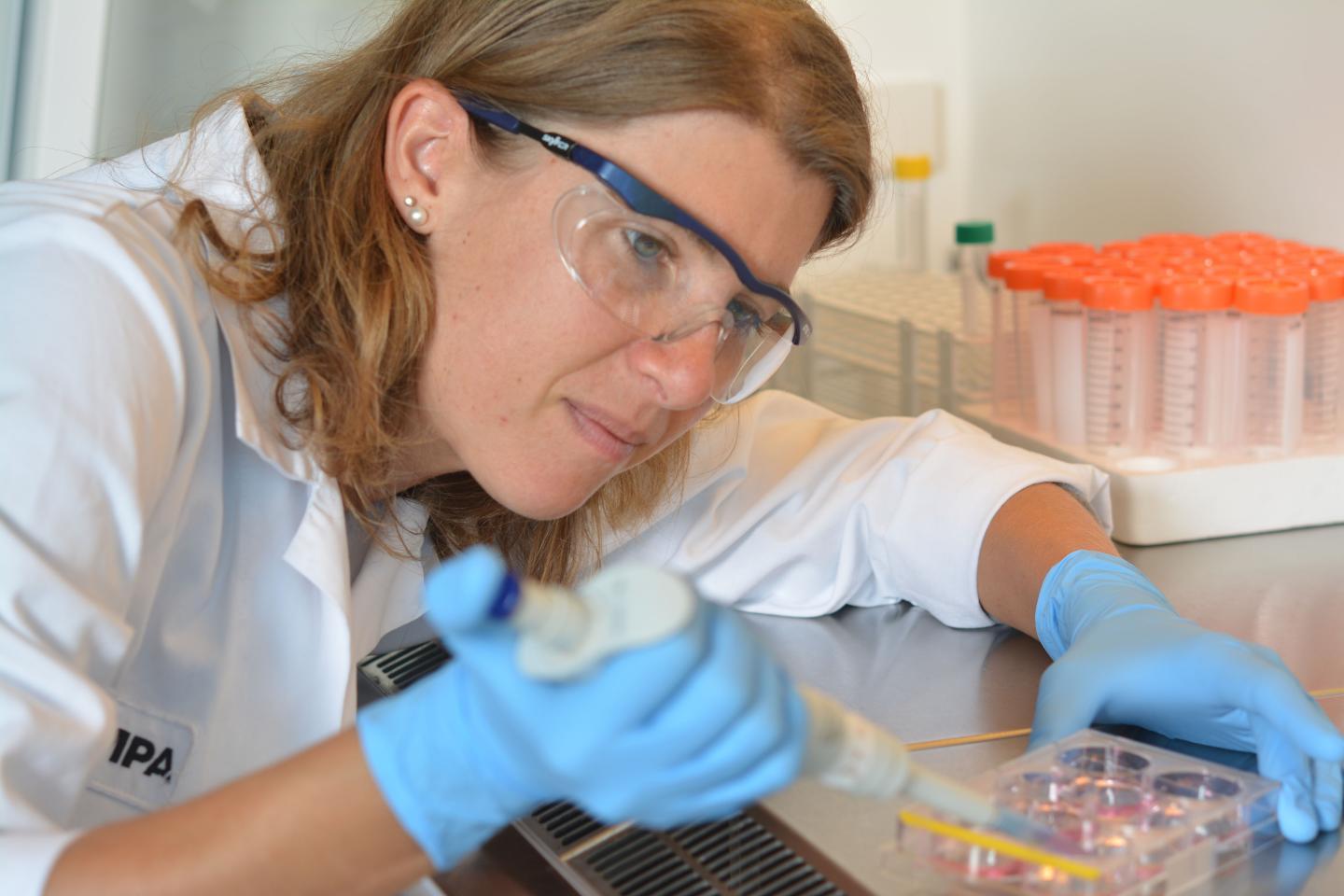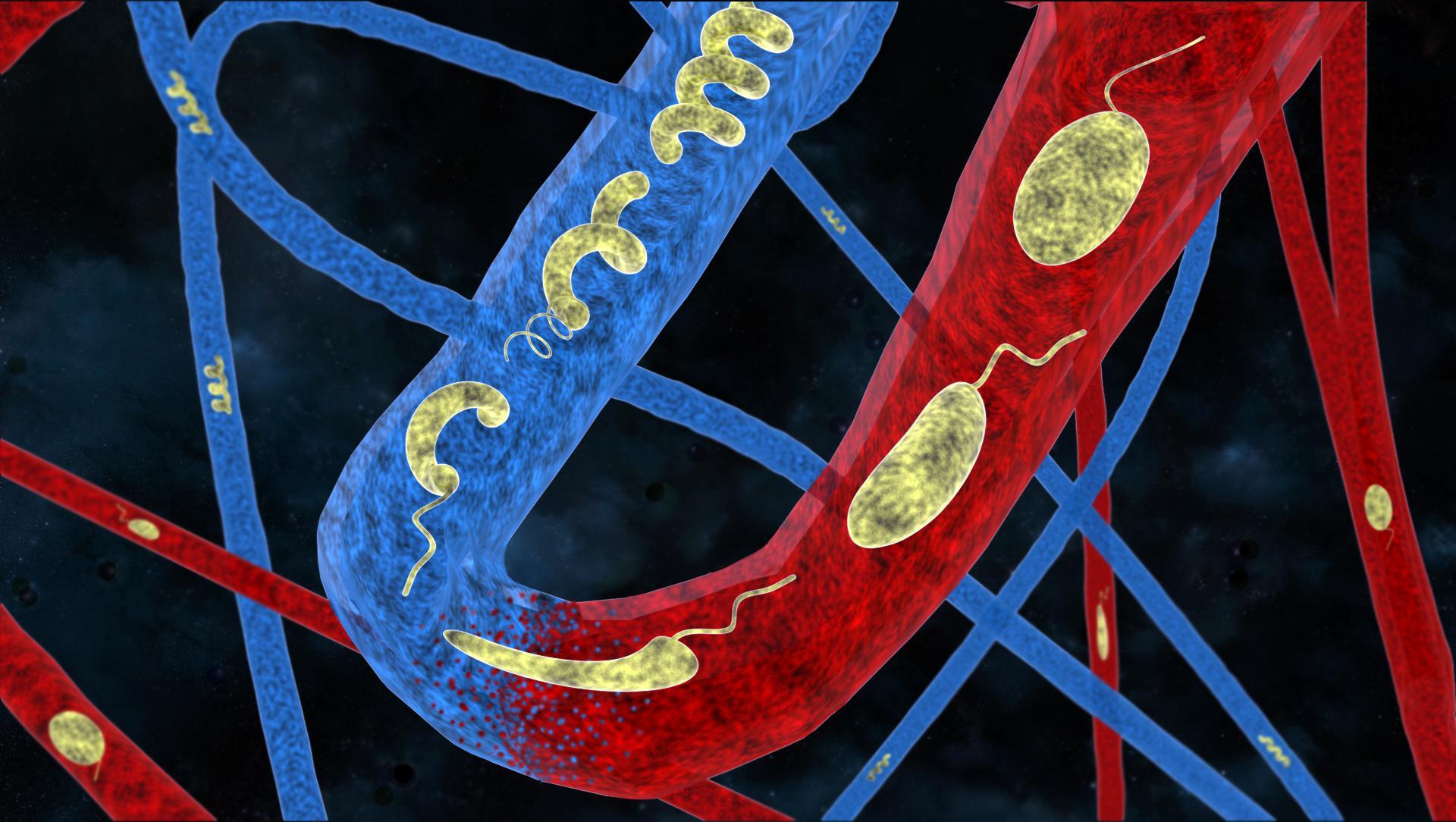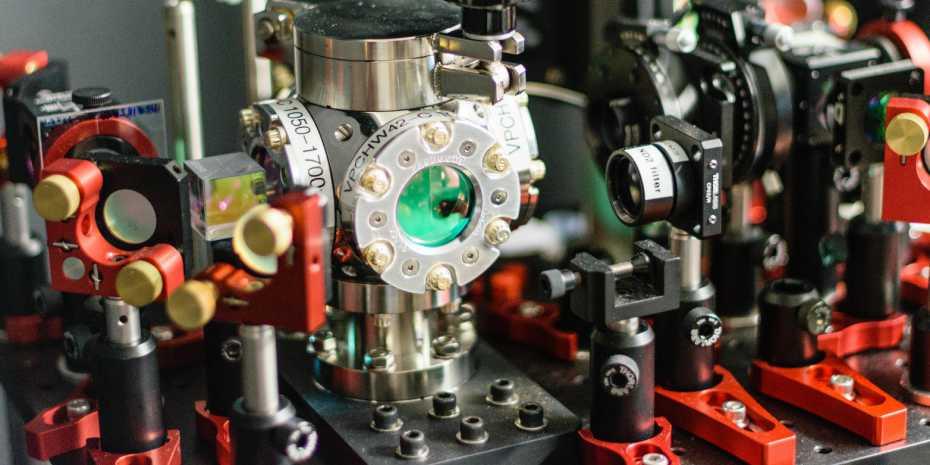Gold nanoparticles improve effectiveness of medicines

Researchers at the University of Geneva (UNIGE), in collaboration with other institutions, have successfully highlighted the impact of gold nanoparticles on B lymphocytes.
These results, published in the journal ACS NanoExternal link, should pave the way for more effective vaccines and therapies.
B-cells are a crucial part of the immune system and thus an attractive target for vaccine development. However, to fulfil their goal, vaccines must reach B cells quickly without being destroyed en route, UNIGE said in a statement on Friday.
This is where the use of nanoparticles can be interesting.
“Nanoparticles can form a protective vehicle for vaccines – or other drugs – to specifically deliver them where they can be most effective, while sparing other cells,” explained Carole Bourquin, professor at UNIGE’s Faculties of Medicine and ScienceExternal link, who co-led the study.
“This targeting also allows the use of a lower dose of immunostimulant while maintaining an effective immune response. It increases its efficacy while reducing side-effects, provided that the nanoparticles are harmless to all immune cells.”
Golden opportunity
Gold is an excellent candidate for nanomedicine because of its particular physico-chemical properties, the authors wrote. Well tolerated by the body and easily malleable, this metal has, for instance, the particularity of absorbing light and then releasing heat, a property that can be exploited in oncology.
“Gold nanoparticles can be used to target tumours. When exposed to a light source, the nanoparticles release heat and destroy neighbouring cancer cells. We could also attach a drug to the surface of the nanoparticles to be delivered to a specific location,” said UNIGE researcher Sandra Hočevar.
The gold nanoparticles developed by the team of researchers could make it possible to deliver existing drugs directly to B lymphocytes to reduce the necessary dosage and potential side effects. In fact, studies in patients are already being carried out for the treatment of brain tumours, the researchers said.

More
Cancer in the crosshairs

In compliance with the JTI standards
More: SWI swissinfo.ch certified by the Journalism Trust Initiative



You can find an overview of ongoing debates with our journalists here. Please join us!
If you want to start a conversation about a topic raised in this article or want to report factual errors, email us at english@swissinfo.ch.